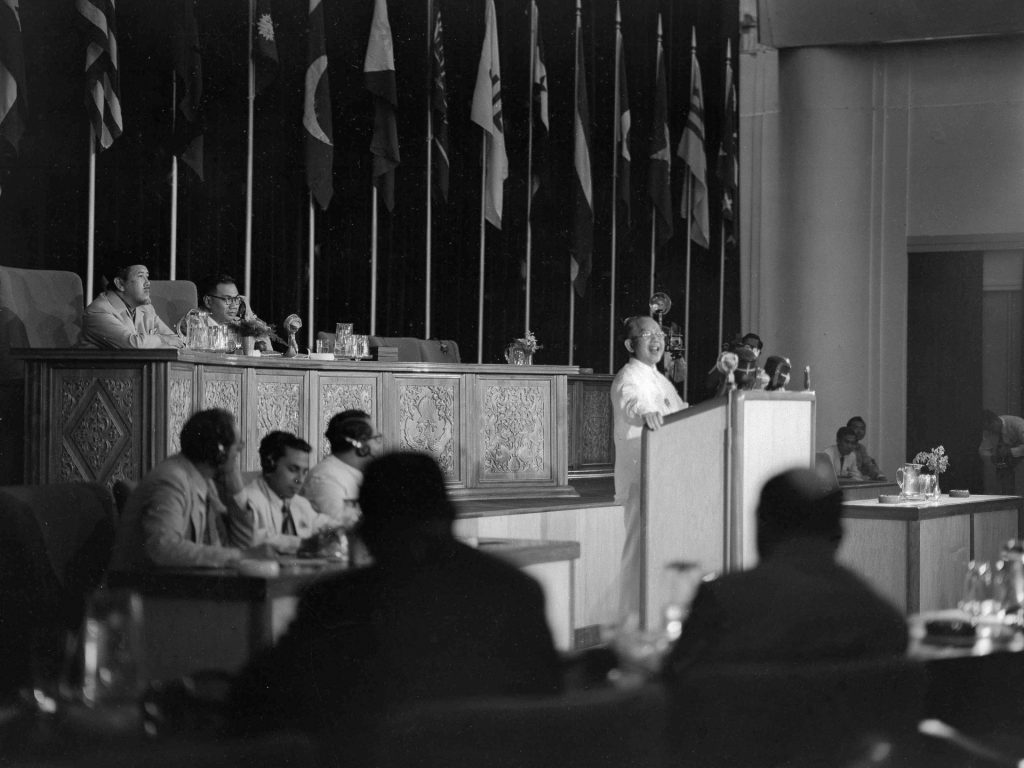We live in difficult times, and it is challenging to remain optimistic about the future. Climate change threatens human wellbeing and planetary health, and the window to secure a liveable and sustainable future for all is rapidly closing.
Neo-fascism is spreading across continents. Militarism is on the rise. Genocide in Palestine continues to be livestreamed while war rages on from Sudan to Ukraine and Myanmar. Workers suffer under a worldwide assault on their political rights and freedoms.
In short, we live in a world imperialist economy that continually reproduces inequality, poverty and war and is driven by the capitalist logic of ever-expanding accumulation that is pushing us towards planetary breakdown. We need alternative visions, and fast.
With this in mind, the Havana Group of the Progressive International launched its Program of Action on the Construction of a New International Economic Order towards the end of 2024. The launch was timed to mark the 50th anniversary of its namesake. The Program of Action, adopted by the United Nations General Assembly in 1974, sought to establish principles for equality between nations and peoples, but it was undone by the oil and Global South debt crises, combined with United States-led resistance to its implementation.
Arguably, the 2024 Program of Action stands a better chance. Many Global South countries have significantly increased their economic and political power over the past 50 years while the North is shaken by US President Donald Trump’s economic policies in pursuit of his “America first”. US unilateralism may well undo the Global North’s decades-long coordinated action to maintain its dominant position.
In this context, the updated 2024 programme proposes policies that can break the developmental divide between the Global North and South and deliver a “sustainable future” of “shared prosperity across the world”. To achieve these goals, the programme identifies five major areas for collective action by governments in the South: climate, industry, finance, technology and governance. Within each area, several objectives are set out, followed by implementable measures for how to get there.
The 31 proposed measures contain a mix of the old and the new, from long-established efforts to improve the terms of trade, to new initiatives, such as resource recycling clubs to address waste and the coordinated development of a public digital infrastructure. The most notable new addition, and of no surprise, is climate. Here, the programme is bold and uncompromising in its objectives, demanding full sovereignty over resources, clean energy abundance, the end of economic dependency, ecologically equal exchange of materials and energy, environmental justice and climate reparations.
Taken together, the programme’s set of 31 proposed measures can be read as a suggestive roadmap for what the late Egyptian economist Samir Amin called “delinking”. For him, the essence of the anti-imperialist strategy of delinking lies in the South, breaking from the demands imposed by the North and reorienting towards the priorities, needs and interests of its peoples.
Amin noted that the core elements of a delinking agenda would entail industrialisation for the mass production of domestic goods, reviving peasant agriculture and reasserting sovereign control over productive activity and economic policy. All these aspects are in Progressive International’s Program of Action.
Central to each of the programme’s 31 proposals is the need for coordinated action across the South to establish a range of clubs, agencies, networks, frameworks and commissions. In this, the programme is calling for a revival of “unity in diversity”, one of the central principles of the Bandung Conference, held in Indonesia in 1955 and attended by 29 Asian and African states to promote a common agenda against colonialism and neocolonialism.
It is easy to dismiss all this as naive optimism, given various faultlines between regions and nations of the South. Equally, it is difficult to see past its centrality to breaking the North–South divide and building a more equitable and just future.
There is also the question of whether we can rely on governing political elites to lead us into this new world. The programme suggests we can. Yet the increasing capture of the state and the ruling classes by the logics and demands of capital accumulation and the development of global capitalism can pose a major challenge.
Often, governing elites function as both promoters and beneficiaries of this trend. Governments in the Global South are not only – or not necessarily – mere victims of the ills of Northern capital. In many instances, they actively participate in and materially benefit from the reproduction of the existing global capitalist order.
The task ahead lies not in awaiting salvation from the enlightened ruling classes but in building at home the economic and political power of what Guyanese historian and revolutionary Walter Rodney termed the “working people”. Self-organised peasants and workers have historically played leading roles in anti-capitalist politics and liberation struggles against colonial and imperial subjugation.
Today, six in 10 workers globally are in informal employment, increasing to nine in 10 workers in the world’s poorest countries. To reflect this reality, labour organising must go beyond formal wage employment to include informal and self-employed labour as well as reproductive labour.
Any collective flourishing within a new international economic order will once again depend on the determining role played by labour and popular forces, broadly understood. Without this, the excesses of global capital and the violence, impoverishment and inequality these reproduce will never be constrained.
The views expressed in this article are the author’s own and do not necessarily reflect Al Jazeera’s editorial stance.


